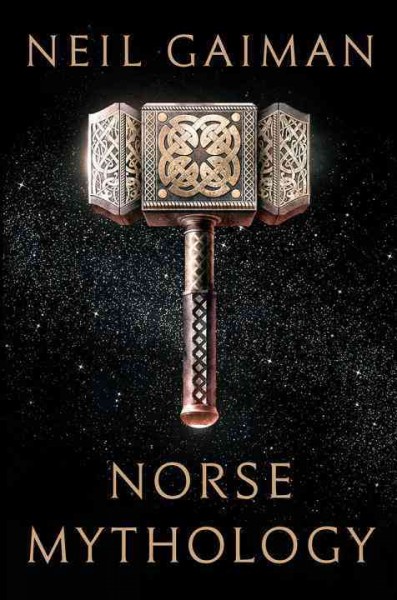 Neil Gaiman’s Norse Mythology is a welcome addition to the list of works contributing to popular culture’s growing fascination with Norse myth. Gaiman’s work, however, goes a lot farther than any super hero franchise. It’s a topic that many have difficulty reading about outside of the realms of academia, but the author’s own love of the source material shines through as Gaiman gives us a wonderful medium through which to learn about Viking deities. The book starts out very analytical, with a few textbook-esque chapters that introduce the reader to the world and the characters that Gaiman will describe in coming chapters, but this section is short and necessary, as immediately after, he jumps right into a series of mythic stories of action, drama, and a bit of comedy. The humor that Gaiman adds to the tales is not out-of-place, but instead is a bit of modern wit that feels strangely at home in this world; with moments like Thor explaining “when something goes wrong, the first thing I always think is, it is Loki’s fault. It saves a lot of time.” Funny moments like this are the hidden virtue of the book, in my opinion.
Neil Gaiman’s Norse Mythology is a welcome addition to the list of works contributing to popular culture’s growing fascination with Norse myth. Gaiman’s work, however, goes a lot farther than any super hero franchise. It’s a topic that many have difficulty reading about outside of the realms of academia, but the author’s own love of the source material shines through as Gaiman gives us a wonderful medium through which to learn about Viking deities. The book starts out very analytical, with a few textbook-esque chapters that introduce the reader to the world and the characters that Gaiman will describe in coming chapters, but this section is short and necessary, as immediately after, he jumps right into a series of mythic stories of action, drama, and a bit of comedy. The humor that Gaiman adds to the tales is not out-of-place, but instead is a bit of modern wit that feels strangely at home in this world; with moments like Thor explaining “when something goes wrong, the first thing I always think is, it is Loki’s fault. It saves a lot of time.” Funny moments like this are the hidden virtue of the book, in my opinion.
Gaiman reintroduces readers to Odin, the “All-Father;” Thor, the hammer-wielding God of Thunder; and Loki, the God of chaos–among many others. The second story in the book (not counting the few introductory chapters) called “The Treasures of the Gods”, is probably my favorite. Loki shaves Thor’s wife’s head while they sleep, and Thor forces Loki to attempt to restore it. The result is one of the more humorous stories in the book that culminates (SPOILERS) in Thor getting his signature hammer, something that Gaiman describes as also “Loki’s fault”. The stories cover the entire range of the mythology,  beginning with basic origin stories and culminating in the final chapter with the story of Ragnarok, the Norse doomsday prophecy. Gaiman takes these classic tales and puts his own twist in them, writing them as if they were brand-new inventions of his mind. Norse Mythology is fantastic and, at the very least, an extremely fun read that anyone who loves fantasy of mythology (or even someone who doesn’t) should pick up and give a shot.
beginning with basic origin stories and culminating in the final chapter with the story of Ragnarok, the Norse doomsday prophecy. Gaiman takes these classic tales and puts his own twist in them, writing them as if they were brand-new inventions of his mind. Norse Mythology is fantastic and, at the very least, an extremely fun read that anyone who loves fantasy of mythology (or even someone who doesn’t) should pick up and give a shot.

